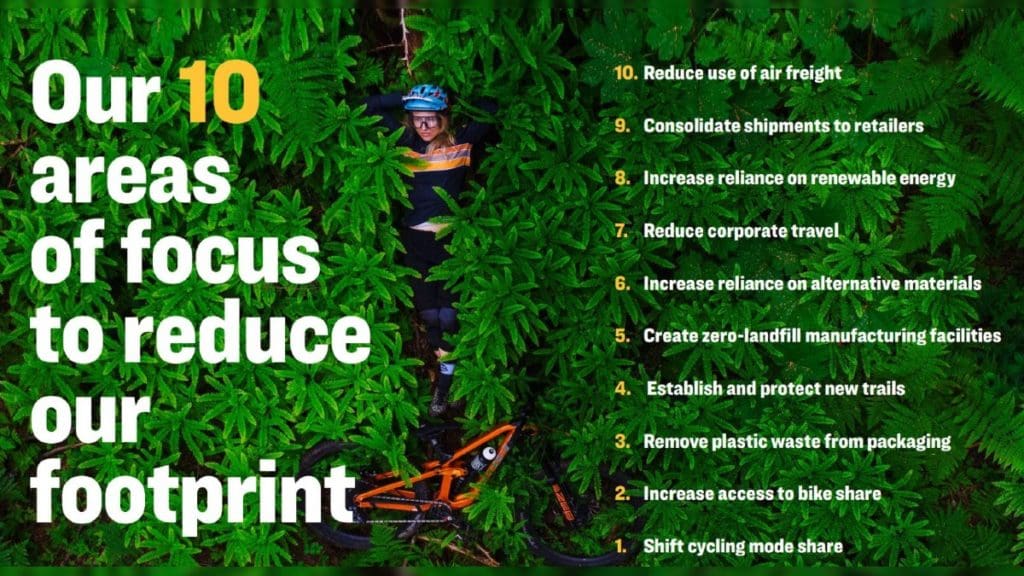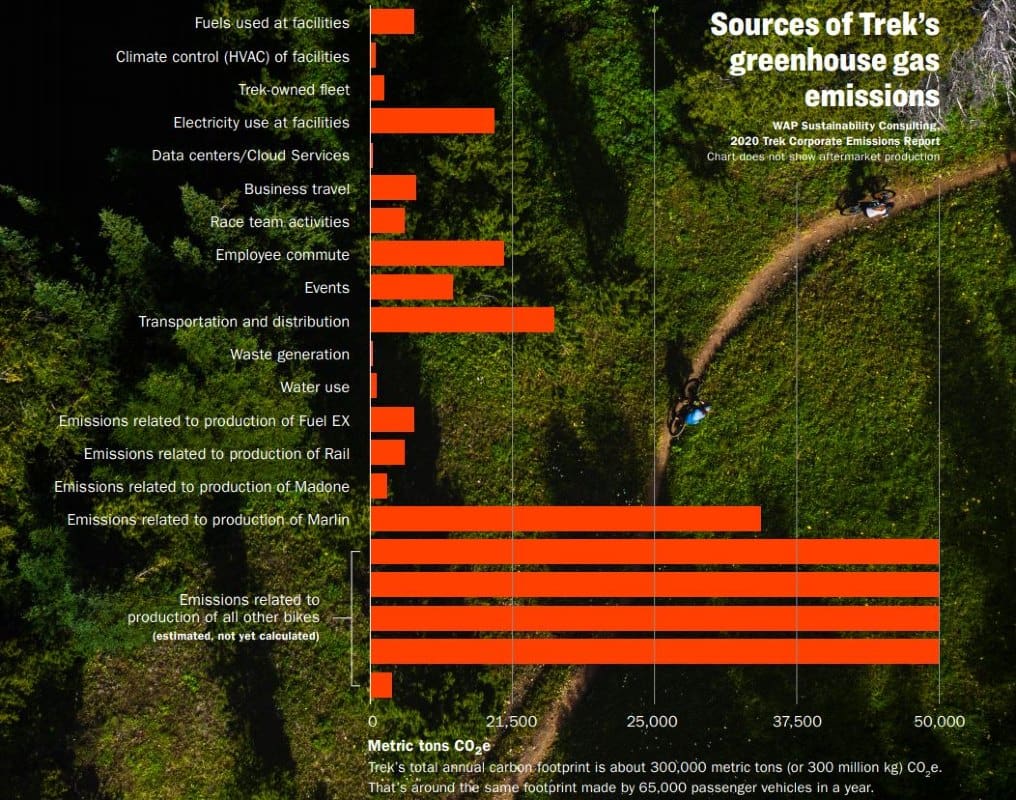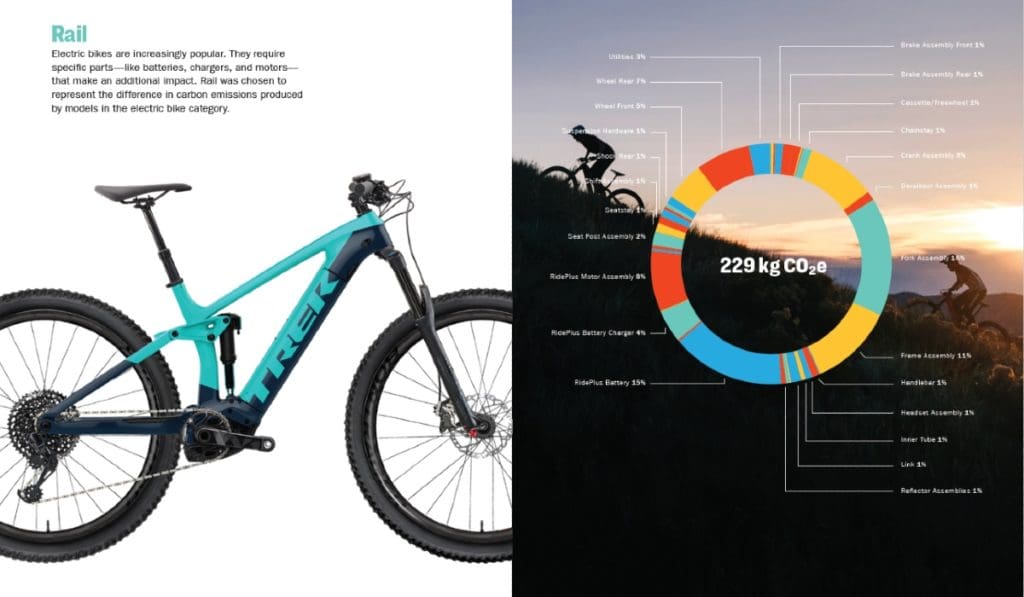Sustainability Report Lifts the Lid on Bike Industry

Many bicycle industry members feel good about the idea that they’re selling environmentally sustainable products. But exactly how environmentally friendly is the process of manufacturing, distributing and selling bicycles?
Trek Bicycles have just released their first annual Sustainability Report, which answers some of these questions.
In his introduction to the report, Trek’s President, John Burke said, “At Trek, we’re just getting started but we are committed to moving fast and taking real action to reduce our environmental impact.
“We don’t have all the answers but every day we’re learning more about what we can do to improve. We will continue to explore every opportunity and share our progress and knowledge in the hopes that it inspires and educates others.
“Because in the end, it’s going to take all of us.”
Amongst the many interesting claims in the report is that once a new bicycle is ridden 430 miles (688 kilometres) then it has ‘broken even’ on the carbon impact of its manufacture compared to driving a car an equivalent distance. Of course this claim is based upon a range of assumptions, which are detailed in the report.
Trek are planning to analyse in detail the kilograms of carbon currently emitted to manufacture each of their models. In this first annual report, they started with four:
- Marlin – entry level MTB 116kg CO2
- Fuel EX – full suspension MTB 153 kg CO2
- Madone – high end carbon road 197kg CO2
- Rail – full suspension E-MTB 229 kg CO2
As you might expect, the sole e-bike in the group with its battery and motor, required the highest carbon emissions, but interestingly by far the lightest bike, the Madone, required the second highest emissions.
Trek outlined 10 areas of focus to reduce the company’s carbon footprint going forward.
You can see an image listing these within this article.
Interestingly, Trek say their biggest carbon impact is not manufacture but freight. And within freight, it’s not sea freight, but airfreight that’s the culprit, having a carbon footprint 84 times higher than sea freight for a given shipment.
In discussing the need to establish more cycling trails Trek spoke about their new Trek Foundation, established this year, which will fund trail building projects on privately owned land, provided they meet a range of criteria including being free for public use and preserved in perpetuity.
Trek included a number of pledges within the report that included the following:
- Reduce air freight — Trek has pledged to improve supply chain processes to reduce air freight mileage by 75% by 2024.
- Consolidate shipments to retailers — To address ground shipping emissions, a global consolidated shipping strategy is being devised, also by 2024. Mainland European retailers currently utilize a batched shipping strategy that cuts mileage required to move product.
- Increase reliance on renewable energy — By 2023, all Trek facilities globally will be powered by renewable energy. Currently, global headquarters uses a mix of 60.6% wind, 33.3% biogas, and 6.1% solar power. The California and New Jersey distribution facilities are 100% renewably sourced.
- Reduce corporate travel — In 2021, travel has been reduced by 50% of pre-pandemic levels, and it will continue to reduce plane travel moving forward.
- Increase reliance on alternative materials — A commitment to using recycled, recyclable or refurbished materials to build products. Today, 15 products are made entirely of reclaimed materials. For example, in partnership with Bureo, a group working to remove discarded fishing nets from the oceans, Trek is grinding down this ocean pollutant into reusable material used to create the water bottle Bat Cages present on Trek bikes. The material is present in several handlebar grips as well.
- Create zero-landfill manufacturing facilities — The goal is to become landfill-free by 2024 with efforts already in place in the U.S. manufacturing facility.
- Establish and protect new trails — The establishment of The Trek Foundation will provide support to develop trails and infrastructure for public use and protect land from development.
- Remove plastic waste from packaging — The use of new packaging for bikes and accessories in an effort to cut down on non-recyclable pieces, working toward a goal of plastic-free packaging by 2024. In one year, Trek removed 433,600 pounds (192,000 kg) of plastic packaging.
- Increase access to bike share — Since 2009, Trek-owned bike share system, BCycle, has reduced congestion and transportation-based carbon emissions in 35 cities, according to Trek. It is committed to accelerating that growth and expansion.
- Get more people on bikes — In the U.S. alone, a 1% shift from vehicle transportation to cycling would result in a carbon reduction about 17 times bigger than Trek’s total global carbon footprint, according to the company, which is supporting causes that lobby for bikes, provide economic incentive to cities and individuals to choose sustainable transportation, and build better bike infrastructure.
This article was also released on the Micromobility Report website.



